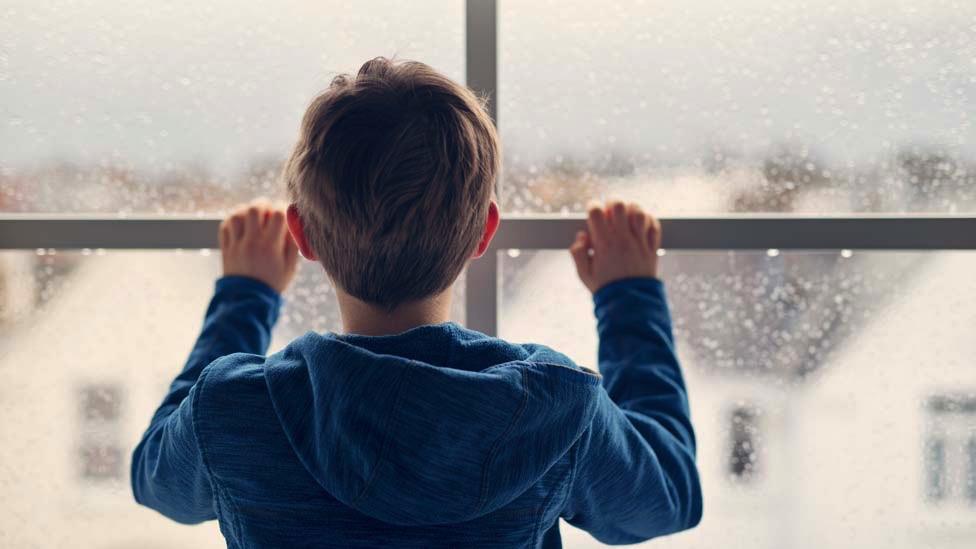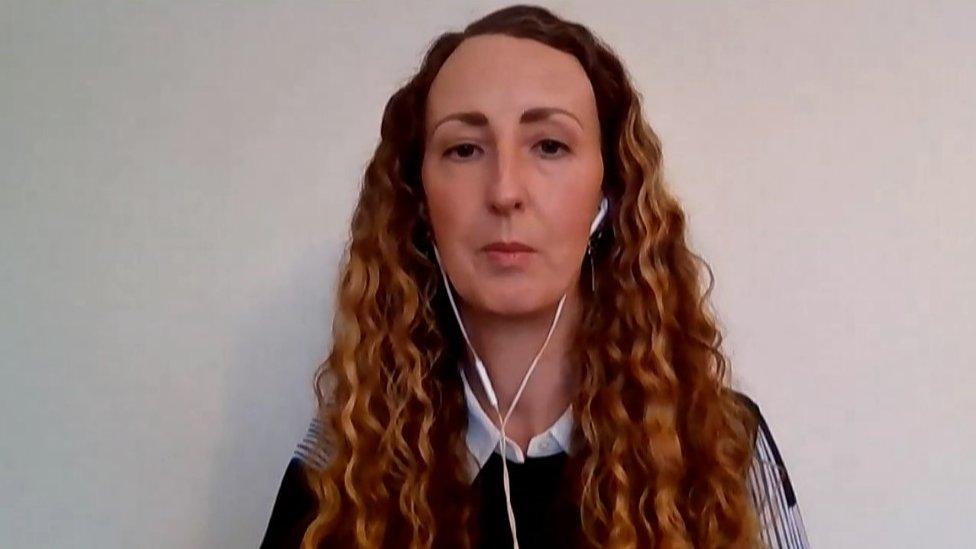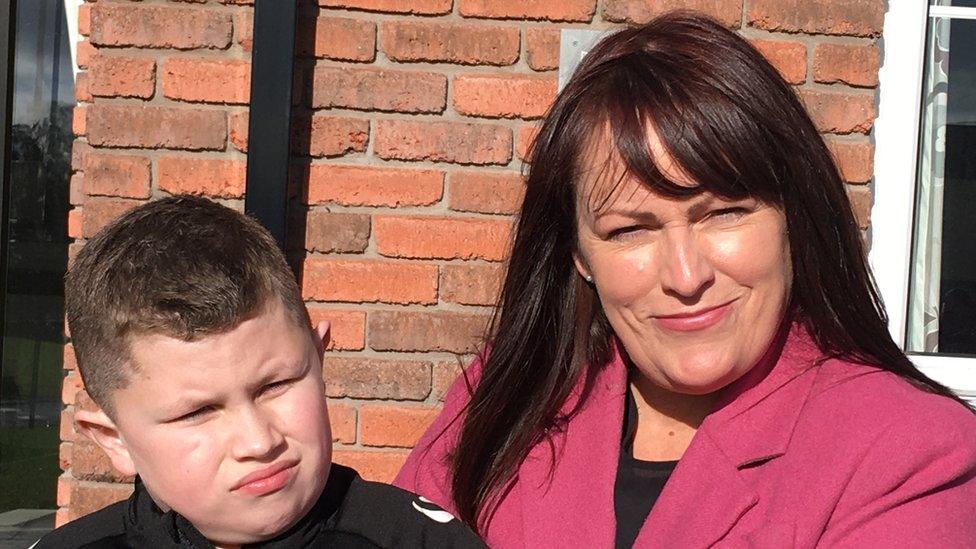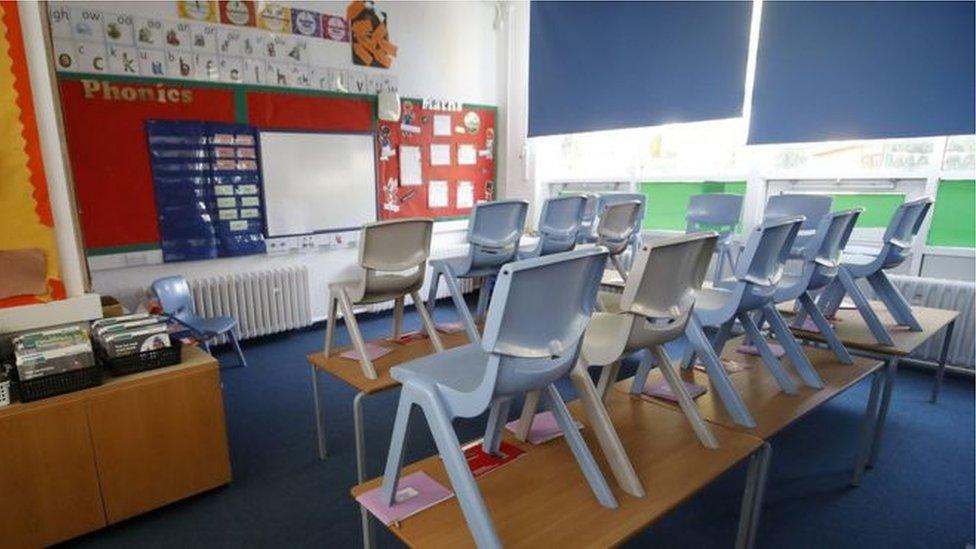Covid-19: Vulnerable children 'drugged to prevent self-harm'
- Published

Respite units as well as special schools have been closed during the pandemic
Northern Ireland should be ashamed of the way some vulnerable children are treated, politicians have been told.
"Avoidable harm" had been caused to families by the withdrawal of services during the coronavirus pandemic, said a Children's Law Centre representative.
There had been "inhumane and degrading treatment meted out to the most vulnerable people", said Rachel Hogan.
Department of Health and education officials say support for vulnerable children is a priority.
Many support services, therapies and respite support for vulnerable children and those with special educational needs (SEN) are not being provided at pre-pandemic levels.
MLAs on the education committee had previously been told that, as a result of a lack of help, some children had harmed themselves and injured their parents.
Children 'drugged' claim
The best interests of many vulnerable children had not been at the centre of decisions that had been made, Ms Hogan told the committee on Thursday.
"There has been avoidable harm - physical, mental harm - caused to children and young people by the policies that have been rolled out and the restrictions," she said.
"During the pandemic the respite units were closed and the timing of these closures couldn't have been worse because it coincided with the closure of special schools."
In response to a question from the DUP MLA Robin Newton, Ms Hogan said a small number of children had to be chemically restrained or sedated to stop them harming themselves.

The Children's Law Centre's Rachel Hogan gave evidence to the committee via video call
"Even a small group, that's a very, very serious action to take, so instead of providing education and respite we will drug this child." she said.
"On any human rights assessment that's completely inappropriate, it's an abuse of human rights."
She added: "In any civilised society we should not be doing that to children who have severe learning difficulties and can't speak to tell us how they feel."
"That's utterly reprehensible, it should never happen."
"If we can't get someone to take one of those children out for a drive for a couple of hours there's something very, very wrong with the system and we should be ashamed in Northern Ireland if that's the way we treat our most vulnerable children."
Many services had still not been restored and there was a need for a co-ordinated cross-departmental approach to maintain services for vulnerable children in the event of further lockdowns, said Ms Hogan.
Autistic children 'abandoned'
The committee chairman, Alliance MLA Chris Lyttle, called Ms Hogan's evidence on Thursday "very disturbing".
"The evidence suggests there is still no coherent plan in place to provide auxiliary services when they can't be accessed at special schools," he said.
The Sinn Féin MLA Karen Mullan said some autistic children had been "abandoned" by health and education, while the SDLP's Daniel McCrossan said the lack of some services raised "serious equality issues."
"Serious questions need to be asked about why so many children are being let down," Mr McCrossan said.
However officials from the Department of Health (DoH) and Department of Education (DE) - who subsequently gave evidence to the committee - said that an emergency plan had been put in place for many vulnerable children during the pandemic.
Ricky Irwin from DE, though, acknowledged the impact of the pandemic had presented "significant challenges" for families of children with complex needs.
Eilís McDaniel from DoH said referrals to children's social services had risen since late April and were "consistently in excess of the average number of referrals received weekly before the pandemic".
Ms McDaniel said there were about 2,400 children on the child protection register in Northern Ireland and around 24,000 children in need who were known to statutory social services.
- Published9 November 2020

- Published22 October 2020
